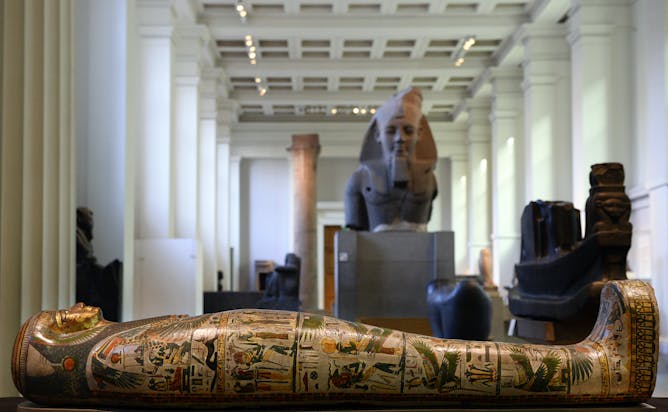|
|
|
Editor's note
|
|
Every year on May 18 the International Council of Museums drums up support for museums around the world. It believes they are important because they enable cultural exchange, enrich cultures and help develop mutual understanding, cooperation and peace. But do they in fact do all these things? Not always, argues Yirga Gelaw Woldeyes. In fact many Western museums continue to display artefacts taken from Africa. It’s time they seriously
considered returning them. Elsewhere Fiona Greenland, James Marrone, Oya Topçuoğlu and Tasha Vorderstrasse examine how Syria’s
archaeological heritage has been ransacked by the Islamic State.
Historically, cities have been the drivers of productivity and engines of economic growth. This could be truer than ever before given the rate at which urbanisation is happening in cities around the world, and especially in sub-Saharan Africa. But Astrid Haas argues, it’s not - and that’s down to how cities in the region are governed.
|
Julius Maina
Regional Editor East Africa
|

|
|
Top Stories
|

A mummy of the Ancient Egyptian Priestess “Tamut” (900 BC) on display at British Museum in London, in 2014.
EPA/Facundo Arrizabalaga
Yirga Gelaw Woldeyes, Curtin University
The power to select, name and decide the meaning of these items makes Europeans the authors of African history.
|

Kumasi in Ghana is one of the world’s fastest growing cities.
Adam Cohn/Flickr
Astrid R.N. Haas, International Growth Centre
Africa is home to the world's fastest growing cities. However, poor governance has robbed the continent of the benefits of people and firms clustering together.
|
Environment + Energy
|

Bernard Bett, International Livestock Research Institute ; John Gachohi, Washington State University
Outbreaks often affect the same areas because, once released, the bacteria continues to live as spores in the soil.
| |

Muchazondida Mkono, The University of Queensland
Trophy hunting is not the solution to Africa’s wildlife conservation challenges. There are other ways.
|
|
|
Podcast
|

Ozayr Patel, The Conversation
In Ethiopia, boys are more likely to go to school than girls are. Role models can change this.
| |

Ozayr Patel, The Conversation
Black women face a number of challenges in trying to become scientists.
|
|
|
From our international editions
|

Robert Merkel, Monash University
Two security scares in the past 24 hours should prompt you to make sure your software is up-to-date. But what are the risks?
| |

Mitchel Daniel, Florida State University
The mating habits of these tiny, colorful fish may be revealing something broader about the animal kingdom, and perhaps even our own desires.
|

Henrik Schoenefeldt, University of Kent
Glass has always been a notoriously energy inefficient building material – but an obsession with aesthetics led architects to ignore its shortcomings.
| |

Smriti Sharma, Newcastle University
As India grapples with boosting the number of jobs available to people, it must ensure it does not leave women behind.
|
|
|
En français
|

Didier Courbet, Aix-Marseille Université (AMU); Marie-Pierre Fourquet-Courbet, Aix-Marseille Université (AMU)
À la veille des Journées européennes de l’obésité, zoom sur un facteur de risque du surpoids relativement méconnu et qui, pourtant, nous concerne tous : le temps passé devant les écrans.
| |

Stéphane François, École pratique des hautes études (EPHE)
En 2018, les idéologues de l’extrême droite utilisent avec succès Internet en entretenant une confusion des genres et des idées, favorisée par la méfiance à l’égard des médias « traditionnels ».
|
|
|
| |
| |
| |
| |
Would you like to republish any of these articles?
|
|
It’s free to republish, here are the guidelines.
Contact us on africa-republish@theconversation.com in case you need assistance.
|
| |
| |
| |
| |
|
|
|
|
|
|
|